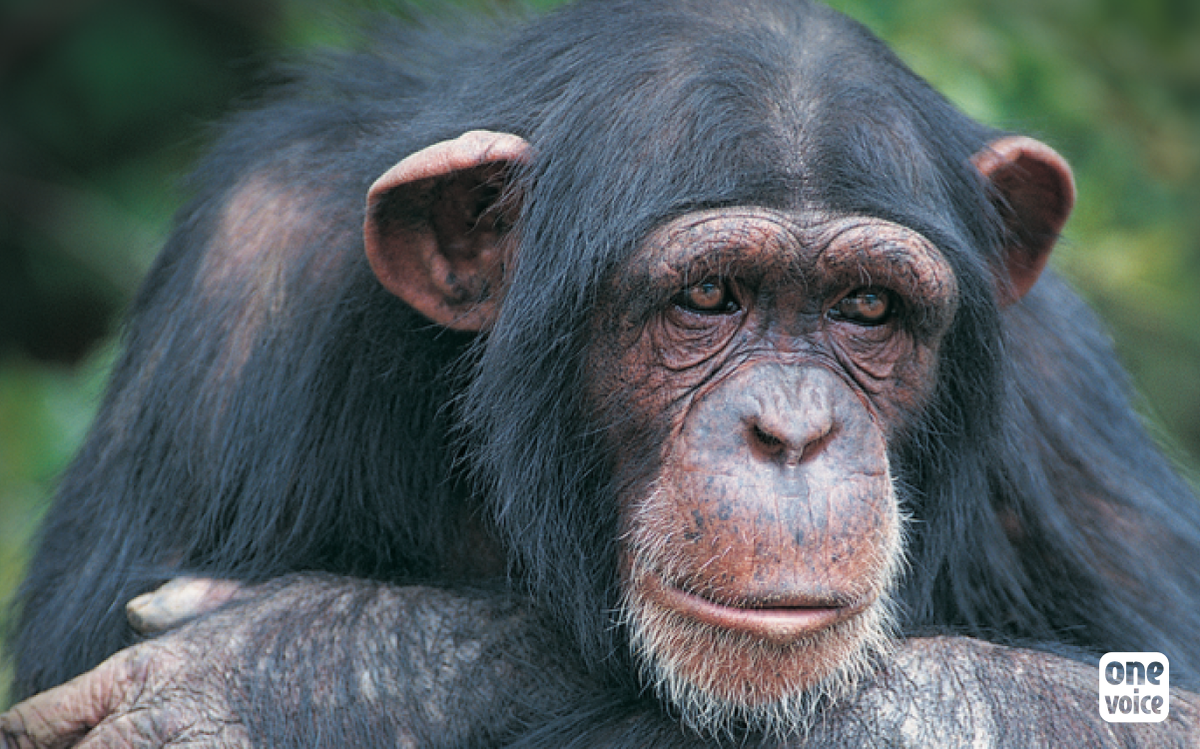

Helping chimpanzees at home
The true protection of endangered species can only be done in the wild, not in a Zoo. That’s why One Voice has joined partners with P-WAC to save the last chimpanzees in the Congo.
One Voice’s Project for Wildlife and Apes Conservation is led by Amandine Renaud, an experienced and passionate primatologist.
In France, P-WAC intends to raise awareness about deforestation and the disappearance of great apes in order to change the public’s perception of our closest cousins.
In the Democratic Republic of Congo, the association is setting up a rehabilitation centre for poached chimpanzees. Its objective is to protect this critically endangered species in situ, while contributing to the sustainable development of the local population. The creation of such a centre, in close collaboration with the women’s community, is indeed creating jobs for the villagers who are involved. Responsible ecotourism is still underdeveloped in the Congo despite the richness of its fauna and flora, while it would at the same time save the great apes, the heritage of the country and also to finance projects of this type.
It is indeed in Africa that chimpanzees live, not in a Zoo. Sanctuaries such as proposed by P-WAC are the only way to preserve not only the great apes as species, but also as animal people bathed from childhood in a particular culture, closely related to the world of trees and the forest, using tools, rituals, remedies, to track signs and gestural codes transmitted from generation to generation. Locked up on top of each other in a concrete enclosure, moved from one Zoo to another for breeding purposes, captive great apes can only give birth to mentally hybrid beings, born under human control in a socially and sensory impoverished space. Otherwise conserved in a refrigerated gene bank awaiting cloning!
And the great apes are also part of those other hominids that we have systematically massacred, from Australopithecus to Neanderthals, before moving on to indigenous peoples, threatened like chimpanzees by the destruction of their tropical forests.
It’s enough. Gorillas, bonobos, chimpanzees and orang-utans are the ultimate representatives of this abounding bush of anthropoid primates whose territories we have reduced only for Homo sapiens. We can still save them, if we really want to.
Many people today demand – and One Voice first – that fundamental rights be granted to great apes, the latter not only sharing with humans an ancestry barely 6 million years old, but also a great number of emotional and cognitive abilities.
An appeal has just been launched for UNESCO to finally adopt the concept of “living world heritage” and integrate great apes. This is the least we can do for those “tropis” on the blurred border between humans and non-humans that Vercors describes in his book “The Denatured Animals” and who have the misfortune to look so much like us.
And it is in this spirit that One Voice supports the P-WAC initiative.